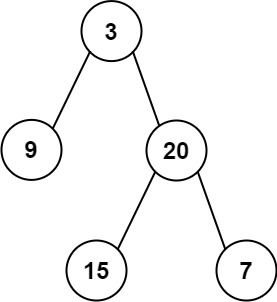Given the root of a binary tree, return the sum of all left leaves.
Example 1:
Input: root = [3,9,20,null,null,15,7] Output: 24 Explanation: There are two left leaves in the binary tree, with values 9 and 15 respectively.
Example 2:
Input: root = [1] Output: 0
Constraints:
- The number of nodes in the tree is in the range
[1, 1000]. -1000 <= Node.val <= 1000
# Definition for a binary tree node.
# class TreeNode:
# def __init__(self, x):
# self.val = x
# self.left = None
# self.right = None
class Solution:
def sumOfLeftLeaves(self, root: TreeNode) -> int:
if root is None:
return 0
res = 0
if root.left and root.left.left is None and root.left.right is None:
res += root.left.val
res += self.sumOfLeftLeaves(root.left)
res += self.sumOfLeftLeaves(root.right)
return res/**
* Definition for a binary tree node.
* public class TreeNode {
* int val;
* TreeNode left;
* TreeNode right;
* TreeNode(int x) { val = x; }
* }
*/
class Solution {
public int sumOfLeftLeaves(TreeNode root) {
if (root == null) {
return 0;
}
int res = 0;
if (root.left != null && root.left.left == null && root.left.right == null) {
res += root.left.val;
}
res += sumOfLeftLeaves(root.left);
res += sumOfLeftLeaves(root.right);
return res;
}
}
